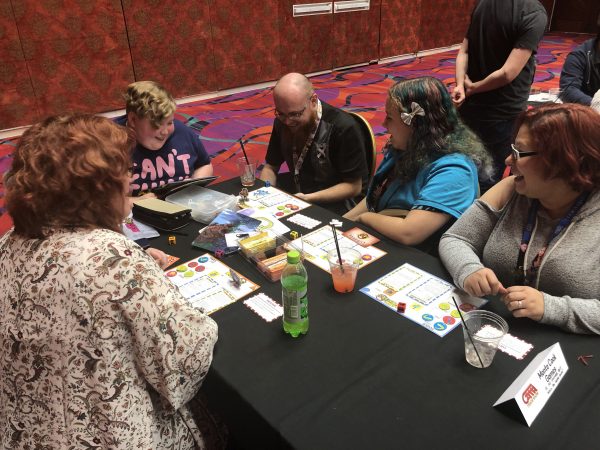What is the value of play? How does it differ between children and adults?
Dominique Dickey is MCG’s talented intern, who writes here about (re)discovering make-believe through RPGs!
Most neurotypical kids start engaging in some sort of imaginative play around age two, and all anecdotes point to me having met that milestone. I remember pretending bananas were phones, turning a blanket fort into a house, imagining my living room to be a grocery store and my mom a cashier. When I was old enough to start playing imaginatively with other kids, and the stories we told together became more and more complex, I became suspicious of the whole enterprise. My friends pretended to be a family going about their daily lives, a gang of robbers fleeing a sheriff, or a group of models getting ready for a runway show. These collaboratively told stories didn’t have clear beginnings, middles, or endings. They often didn’t include any real conflict or resolution. It was anarchy.
Even at a young age, I was too anxious and goal-oriented for this sort of unstructured creativity. I wanted metrics for success. I wanted to play games with objectives and obstacles. I wanted to win, or at least feel like I was good at playing. Without rules or goals, without tension or plot, there was no way for me to know if I was doing a good job of playing house.
So, I deliberately stopped playing pretend, and for years I missed out on the myriad benefits of flexing those creative muscles: improved social skills, heightened emotional regulation, and a propensity for creative problem solving. I started playing roleplaying games (RPGs) in college, and it wasn’t until I read No Thank You, Evil! that I realized that RPGs are more structured versions of the play I derided as a child. Character sheets, die rolls, and a Game Master’s steady leadership made playing pretend so much fun that I didn’t even think to associate it with the way I played when I was little. Gamers are just big kids, playing elaborate games of pretend to explore themes that excite and frighten us, and adults can reap the same benefits of playing pretend as children.

The structure of an RPG like No Thank You, Evil! could have kept me engaged in games of make-believe. My younger self would have loved to have a Guide helping my friends and I through a linear story, with dice rolls and stats determining our party’s successes or failures. The difference between freeform imaginative play and an RPG is that RPGs have clear rules; for someone like me, those rules make a world of difference.
Most kids know how to role play. Some of us need more structure to enjoy playing pretend, and forget the magic of collaborative storytelling because of that. No Thank You, Evil! can prevent kids from losing that spark, and help grownups rediscover it.
If you’re looking for more reading on the psychology of play, here are some of my favorite articles:
The listed benefits of play in this article really hammered home my realization that RPGs are elaborate games of pretend. I got to the sentence, “Children work out confusing, scary, or new life issues,” and realized that I use gaming to do that!
This article discusses the benefits of pretend play for children, and how parents and teachers can encourage that play.
This interview is also on play in adults, and touches on how the American emphasis on constant productivity robs us of playtime once we get to a certain age.
